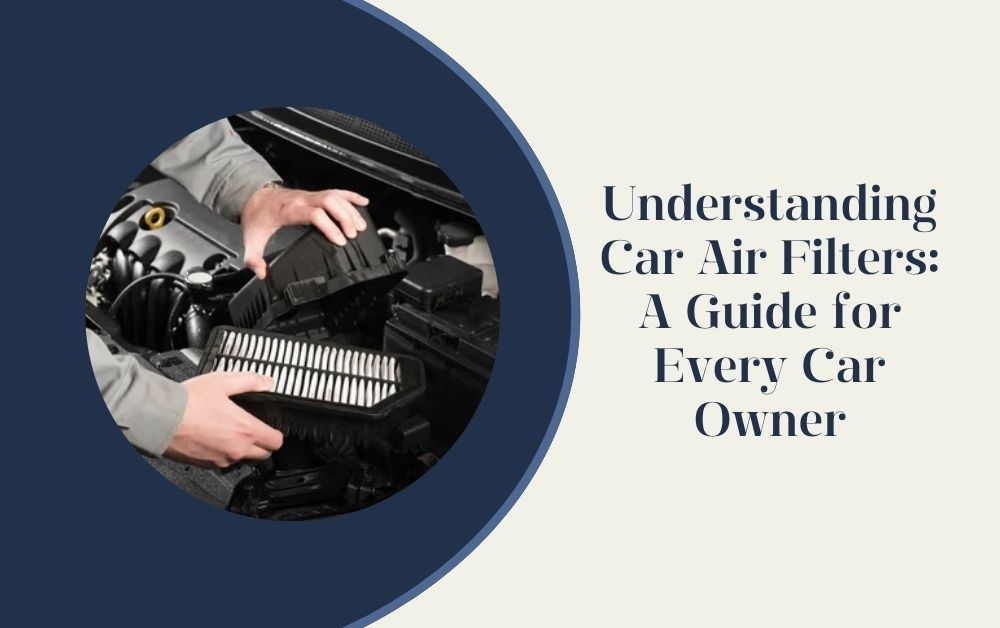Every car has an air filter, a crucial component that many of us overlook. This filter does the essential job of purifying the air that enters your engine, ensuring that harmful debris and dust don’t cause damage. A clean air filter can improve your car’s efficiency, reduce emissions, and even increase its lifespan. In this comprehensive guide, we’ll explain everything you need to know about car air filters, from their function to when and how you should replace them.
What is a Car Air Filter?
The Role of an Air Filter in Your Car
The primary role of an air filter is to clean the air before it gets sucked into the engine’s combustion chamber. There, the air mixes with fuel to create the power that drives your car. Without a filter, dust, pollen, and other airborne debris could get into the engine, potentially leading to damage and affecting the car’s performance.
Types of Car Air Filters
There are several types of air filters, each designed for different types of vehicles and uses:
- Paper Filters: Most common in cars; these are disposable and should be replaced regularly.
- Foam Filters: Often used in off-road vehicles because they provide excellent dust trapping capabilities.
- Cotton Filters: These are washable and reusable, popular in performance cars because they offer high airflow.
How to Check and Maintain Your Car’s Air Filter
When to Check Your Air Filter
It’s a good practice to check your air filter every time you change your oil. Generally, it should be replaced every 12,000 to 15,000 miles, but this can vary based on your driving environment. If you drive on dusty roads frequently, you might need to check and change it more often.
How to Check Your Air Filter
Checking your air filter is a simple task that you can do at home:
- Locate the Air Filter: Usually, it’s in a black plastic box with metal clips on the side. You can find it under the hood of your car.
- Open the Box: Unclip the metal clips and lift the box lid.
- Examine the Filter: Look at the filter. If it’s dark and full of debris, it’s time to replace it.
Changing Your Air Filter
Replacing your air filter is straightforward. Here’s how you can do it yourself:
- Remove the Old Filter: Take it out of the housing.
- Clean the Housing: Wipe out any debris inside with a clean cloth.
- Install the New Filter: Make sure it fits snugly and securely.
- Close the Box: Reattach the lid and secure the clips.
Benefits of Regularly Changing Your Car Air Filter
Enhanced Engine Performance
A clean air filter allows for a smooth flow of air into the engine, which can improve your car’s responsiveness and overall performance.
Improved Fuel Efficiency
When your engine gets the right air to fuel mixture, it can perform more efficiently, leading to better mileage and fewer trips to the gas station.
Reduced Emissions
A clean air filter helps maintain an optimal air-fuel mixture, which burns cleaner and reduces the emissions from your car.
Longevity of the Engine
By preventing abrasive particulate matter from entering the engine, you can significantly extend its life.
Conclusion: The Simple Step to Better Car Care
Maintaining your car’s air filter is a simple yet crucial part of vehicle upkeep that shouldn’t be neglected. By ensuring that your air filter is clean and functional, you contribute to your car’s performance, efficiency, and longevity. Regular checks and changes will not only save you money on repairs and fuel but also help you do your part for the environment by reducing your car’s emissions. Remember, a small step in maintenance can lead to a leap in your car’s health and reliability.
For more insightful articles related to this topic, feel free to visit toppersblogs


